Hamish McLachlan: Phil Davis talks of grand final dreams and his brush with death
Greater Western Sydney Giants Star Phil Davis sits down with Hamish McLachlan to discuss his grand final dreams and recalls the bump that almost ended his career.
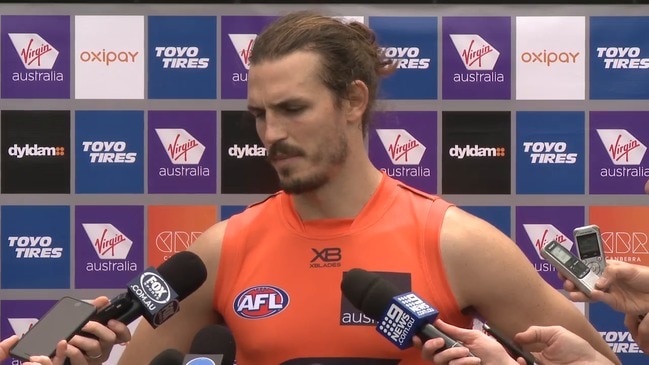
News
Don't miss out on the headlines from News . Followed categories will be added to My News.
Phil Davis spent a lot of his youth in Canberra, was schooled in Adelaide and then drafted to the Crows. At 21, and before he’d played his 20th game, he was co-captain of the Giants. While still finding his feet as a player and a leader, he found himself trying to convince those around him the weekly beatings would all be worth it one day. We spoke about parents, being wooed, having second thoughts, Kevin Sheedy, a near-death experience, Buddy, empathy, and imagining what might be. He’s one of the most likeable guys in footy.
HM: Mother’s Day on Sunday, Philip — how has Jane treated her favourite son over the years?
PD: Jane’s been an 11/10! I’ve been very fortunate. Mum’s been an extremely positive influence on my life in so many ways — she’s given me great confidence and values, and given me the belief that I could chase down whatever dream I was searching for. Mum has always gone above and beyond for me. I wish everyone got to experience the love of a mum like mine. I’ve been unbelievably lucky.
MORE HAMISH MCLACHLAN:
WHY MATTHEW SCARLETT WAS SECRET BOMBERS MEMBER
JANE ROWE ON MISSION TO HELP YOUNGEST DRUG VICTIMS
FEN MCCALL OPENS UP ON SURVIVING DRUG ADDICTION
HM: You’d only played 18 games over two years for the Crows when the Giants came knocking. Who first approached you?
PD: It was pretty much a double act — Stephen “SOS” Silvagni and Graeme “Gubby” Allan were the two people who were pretty consistent throughout the whole pitch, but I had to let it go through my management, in keeping with the AFL rules.
HM: Is it true that when Gubby was showing you around, he never showed you the actual training facilities for fear of you saying “thanks but no thanks!”
PD: Spot on. He was pretty cagey about the specifics — I only ever got to see photos and images of what it was going to look like, but he didn’t tell me that what he was showing me would be ready for my kids if they were ever going to play! The only time I went and saw the facilities was once I’d signed. He kept driving me past great beaches, though ... wonder why.
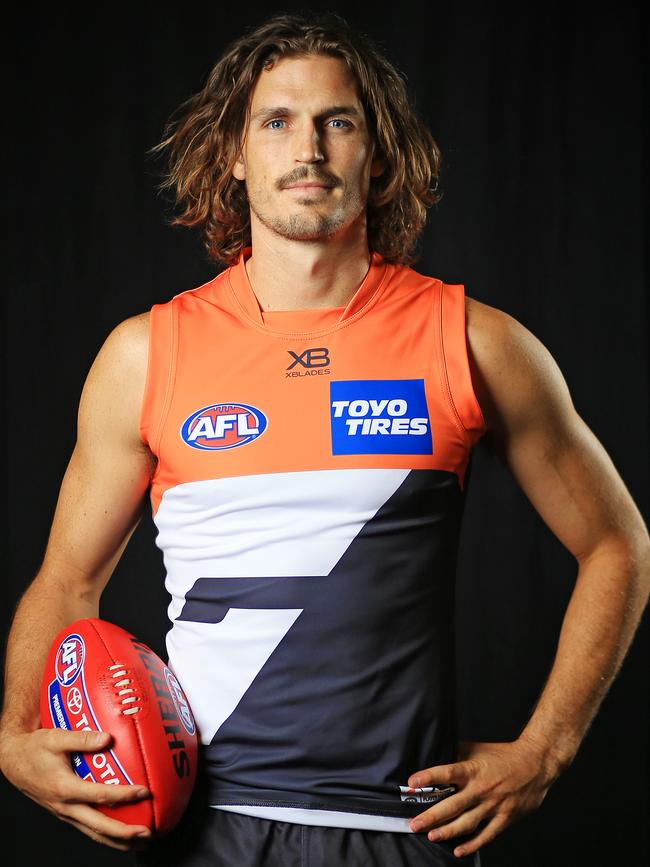
HM: Early doors; did you ever think you’d made the wrong choice?
PD: There were some very testing times through the first two years, but I expected it to be really hard in the first year. It was the second year when I was really questioning
what I’d done. That was without doubt the most challenging year of the Giants’ journey.
HM: What was it that was making you doubt yourself?
PD: I think there were two things. Firstly, it felt like we’d really gone backwards in a big way. The first year was tough, we won two games, then in the second year it just felt like we had regressed. We only won one match for the year — 14 losses were 50 points or more, and five were 100-point losses. We were so far off the pace — so you’d hoped for improvement, but it wasn’t coming. And secondly, I didn’t really feel like Sydney was the place for me. It took me a while to settle in and during that second year, I really missed Adelaide — my mates and just being comfortable with who and what was around.
HM: How do you feel now, eight years in?
PD: I love it. It’s the best thing I’ve ever done. It’s been a challenging journey, but a very rewarding one.
I guess those first two years all play
a part in that. I love the club and what we’ve built — we’ve got a great bunch of people who really care about each other. I feel like we’ve got a good list, and I feel as though we’re giving ourselves the best chance at success.
I love the Sydney lifestyle, too — great weather and beaches and off the grid a bit in terms of AFL.
HM: Meaning you can live a life without the constant analysis?
PD: Early on in my career I got a little bit caught up in that external positive affirmation around performance. When you’re down in those southern states, whether it be Adelaide or Melbourne, if you play well you get told about it all the time. Now that I’m older, I look at that as a real negative, rather than a positive. The anonymity, and the fact that I can still swim in the middle of winter at Bondi Beach and not hear about what everyone thinks of my football, has been great for keeping a fresh body and mind and loving the game.
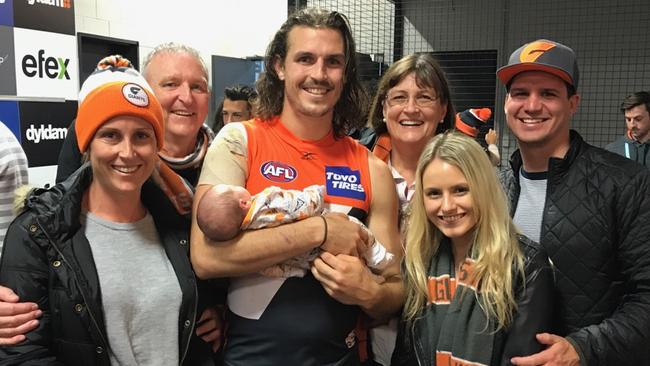
HM: They say you need defeats to give meaning to your victories. As you say, a 12 to 15-goal loss was common. As a young captain, it must have been quite hard to keep everyone up?
PD: Very. We were so lucky that we had one of the great promoters of all time in Sheeds (Kevin Sheedy). He saw the club’s vision when maybe some of us couldn’t — and was instrumental in keeping us on a positive path. As leaders we had to sell our future, rather than the present, and that was sometimes hard. It’s easy to brush one loss aside, and maybe a second, but when you lose 21 games out of 22, which we did in 2013, it’s hard to see the bigger picture.
HM: Could you have been captain at 21 by yourself, or was it critical that you had a couple of running mates with you?
PD: There’s no doubt that I would have been found out in a serious way as a leader and captain if it wasn’t for Cal (Ward) and Luke Power for that first year. We needed each other to spread the load. When I walked in, the list was 50-odd players. My skill set wasn’t good enough to do it, we were losing, and there were a lot of things going on. Dealing with a lot of young players all at once who were potentially homesick, or had other things going on — I just wasn’t equipped to do it. If I had to do it by myself, there’s no doubt I would have failed.
HM: What’s the key to leading a group of young men?
PD: I try to keep things relatively simple. You’ve got to have a clear understanding of why you want to do things, and that needs to be backed up by care. That’s something I’ve always pushed forward in myself. Sometimes how I show my care can be misconstrued, but it always comes from a good place. The overall purpose is that we want to be premiership players, but I also want everyone to leave the club a better person, a more complete person. Whatever it is, I always try to make sure there’s purpose in all we do, and that everyone can see that purpose, and play a role in getting there.
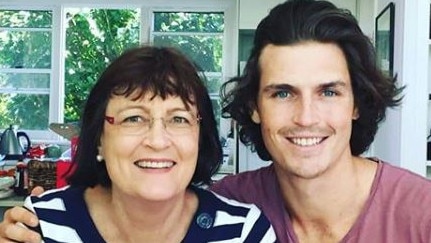
HM: Where did you learn all of that from? That empathy and that care?
PD: My mum’s probably the most empathetic person I’ve ever met. That was something at home that was always there, and I guess when you’re growing up you don’t really know what empathy is, per se, but I saw my mum living it all the time. My family are all very empathetic people. To
be a good leader, you fundamentally have to perform well yourself, then once you’ve got that sorted, you’ve got to go above that and put effort into making other people better. That’s definitely a challenge. Sometimes to get the best out of other people you need to understand how they might be feeling, and that’s where that empathy piece comes in.
HM: How close did you get to dying in 2014?
PD: There’s no doubt there were circumstances that could have
led to that, but it was always relatively under control.
HM: I was told after a harmless looking bump in a game against Sydney you were feeling terrible, and you said to the doctor, “I’m just going to go home and sleep.” He was adamant that you didn’t. If you did, is it right that you would have had internal bleeding that would have led to death?
PD: That’s true. If I had gone home and slept like I wanted to, unless I woke up during the night in chronic pain and taken myself to hospital, I probably would have bled to death.
I don’t want to be too dramatic, because the doctors were never going to let that happen. I was bleeding a considerable amount internally, and
I did feel like sleeping, but I was very fortunate that I was under some unbelievable care from Joe Lombardo, our doctor at the time. He was proactive, read the signs and kept me from going home and going to sleep, which could have been disastrous.
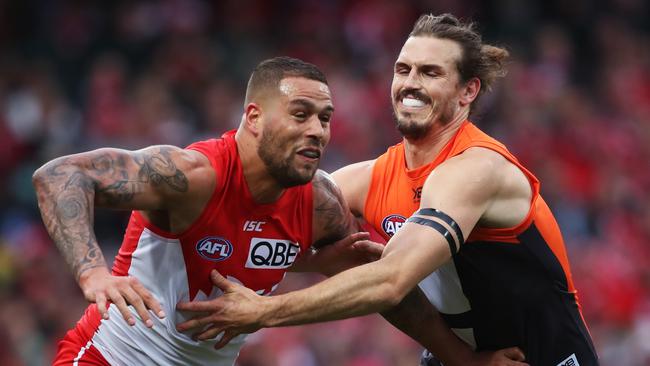
HM: Was that collision and your time out of the game what helped you get over the overwhelming fear of failure going into a game?
PD: Who have you been speaking to? Yeah, it did — absolutely. It really flipped the script on how I viewed my career. I wasn’t a prodigious talent growing up, and I wasn’t a future star or anything like that. It was always a battle for me to get selected and to even get drafted. I always felt like I was scrapping, and the fear of failure threw me. What that injury enabled me to do was reflect a little bit on how I’d got to where I was, but also how stressful it was playing every minute like that. I think there’s still an element of that in my game, but I did a lot of work with a sports psychologist to bin that, and make sure that I was grateful for the opportunity. I was taught to worry about the possibility element of the game, rather than worry about what could go wrong. That old adage: “What if I fail?”… “Yes, but what if you fly!”
HM: I imagine when you know you’re playing on Buddy (Franklin) it’s hard to sleep the night before.
PD: It is. I still remember the first time, in 2011. He kicked 100 a few years before that and was the best forward in the game. We played Hawthorn, and they went on to play in the prelim that year. I didn’t get to see enough of Carey throughout his career, but Buddy’s the best forward I’ve seen. To be a 20-year-old when I played on him for the first time was pretty special, and there’s no doubt that things can’t go wrong more quickly when you’re playing on Buddy.
HM: Somebody said to me that SOS saw you play on Buddy as a Crow — and that was when he knew he wanted you to be the Giants full-back for the next decade.
PD: I actually heard that for the first time about two months ago! SOS must have thought that if I could get him once, then maybe I could a few more times.
HM: Your record on Buddy is unbelievable.
PD: It’s just a match-up that really excites me. He can do the miraculous, and it is such a great challenge to try and minimise the chances of him producing the miraculous too often. It’s a matter of having maximum concentration, for as long as humanly possible on Buddy. Physically, he’s more gifted. He’s got more skills than I do, but I love it, and I think that’s what suits me. I love the contest. He’ll go down as the toughest opponent that I’ve played on. Every mistake you make gets magnified when you’re playing on Buddy, but it’s been
very enjoyable. He’s kicked a lot of goals on me, and has had a bit of success on me, but I always enjoy getting that opportunity.
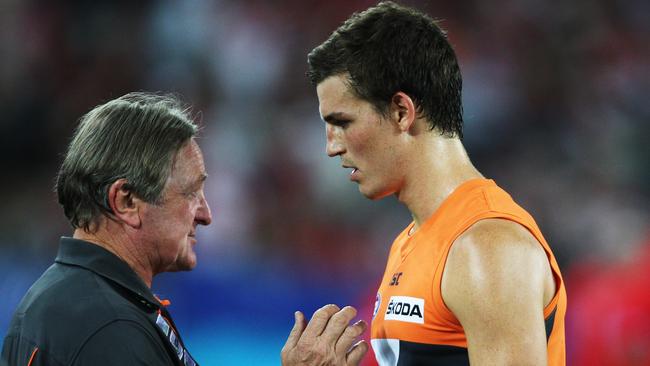
HM: Philip has one L. Is that an oversight?
PD: It is commonly done with two Ls, which has been a burden — and a lot of respelling for people. But I’m a one L kind of guy, just like Prince Philip — and the Philippines.
HM: Your glasses. Practical or aesthetic?
PD: Early on people thought they were aesthetic — actually, most
still do — but I’m as blind as a bat without help.
HM: If you weren’t a footballer, how would you be spending
your days?
PD: I’d still be in Adelaide, I reckon. Just wearing a suit, carrying a suitcase with an apple in it, going to meetings, addicted to coffee, working on the Penski file.
HM: Seinfeld. Brilliant. Do you ever imagine yourself at the ‘G, final game of the season, victorious?
PD: I do, yeah. I think about it a lot, actually. The driving force of my career is to end it as a premiership player. So yeah, it’s a weekly
thought … maybe more often
than that, actually.
HM: I hope it all works out for you — fun to talk.
PD: My pleasure, mate — always fun.


